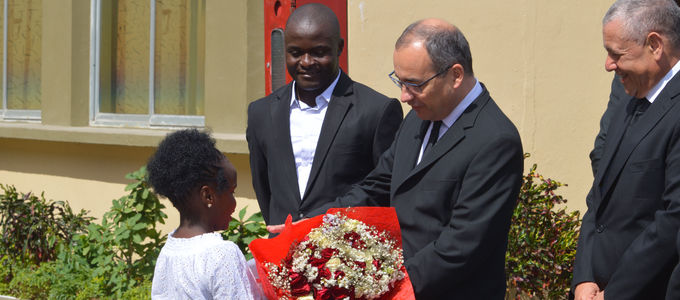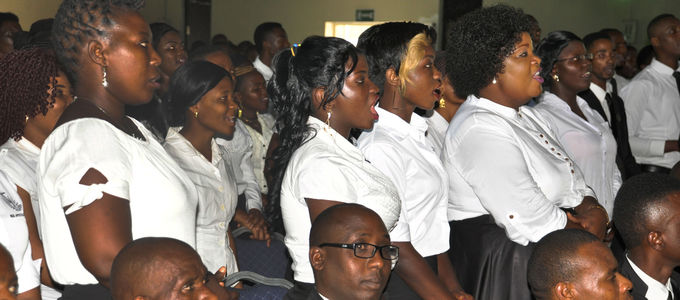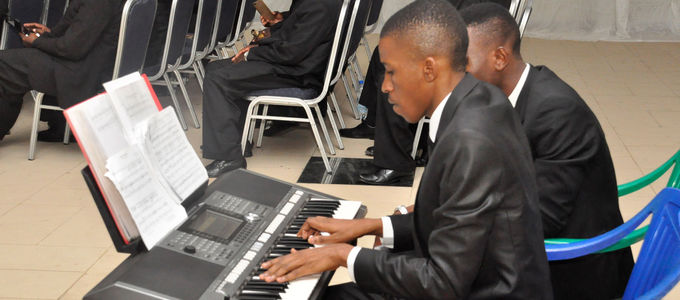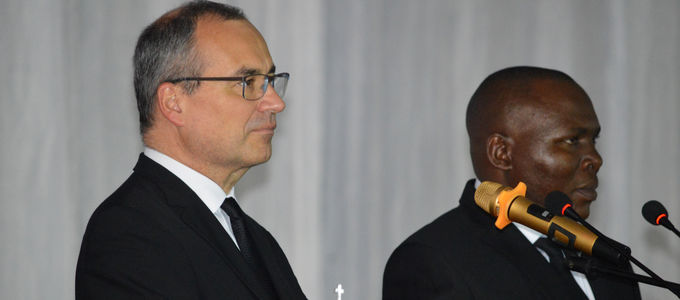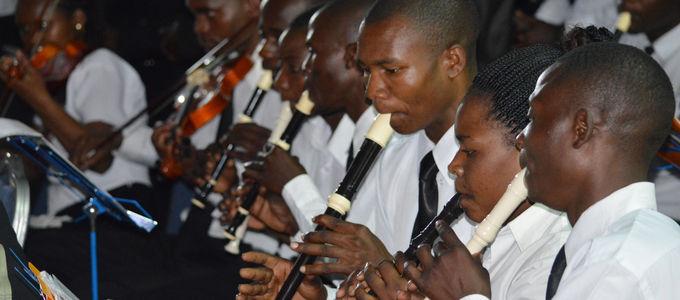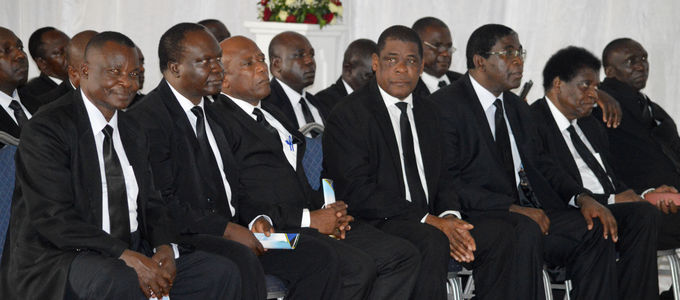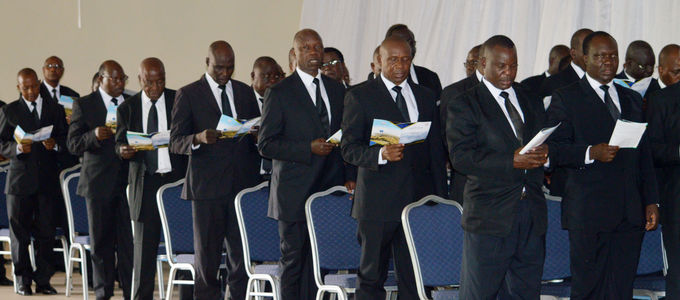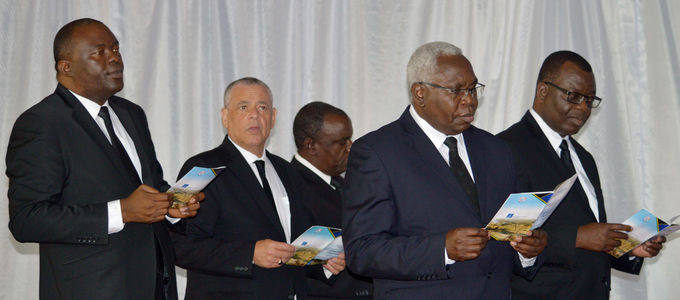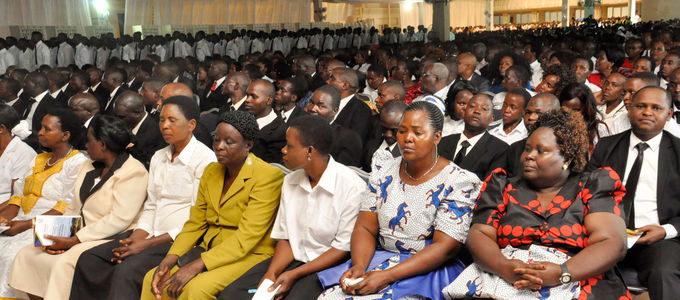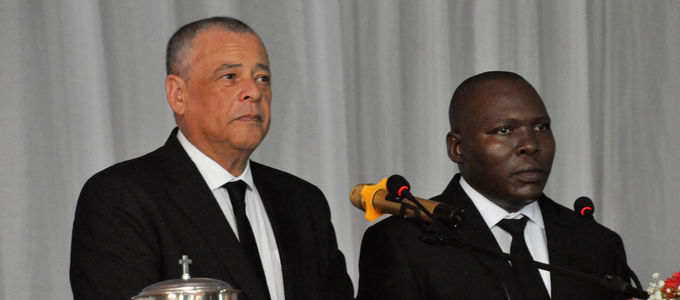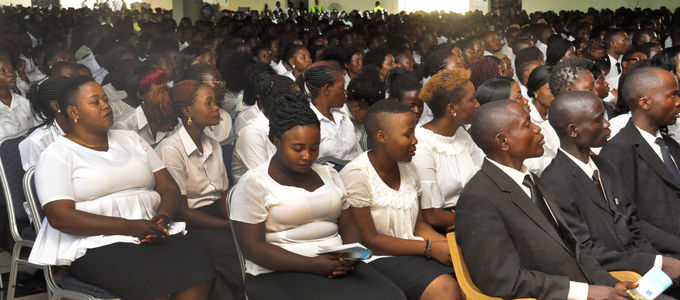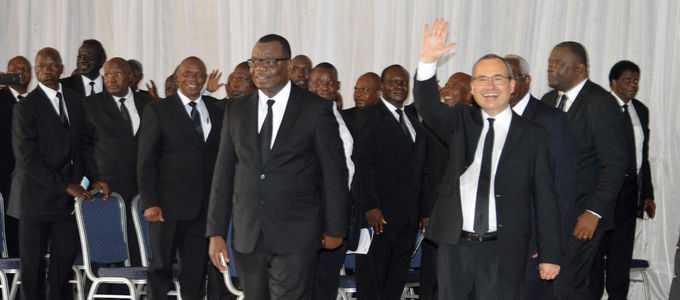
The divine service in Dar es Salaam, Tanzania on Sunday, 12 August was broadcast on national television. On that occasion, the Chief Apostle preached before an audience of thousands about the significance of Holy Communion.
“For as often as you eat this bread and drink this cup, you proclaim the Lord’s death till He comes” (1 Corinthians 11: 26) — these familiar words from Holy Scripture are pronounced in every divine service as part of the New Apostolic Communion liturgy. The message we take from this was explained by the Chief Apostle: “In the celebration of Holy Communion we profess Christ.” This is the central event in the divine service. We eat His flesh and drink His blood in order to have eternal life — already in His time on earth, Jesus explained to His followers how indispensable it is to do so. “He instituted Holy Communion in the circle of His Apostles, and conferred upon them the authority and the commission to celebrate it.” From this it follows that believers can receive the body and the blood of Jesus wherever the Apostles are active. This is a celebration in commemoration of Jesus. “In the sermon, the Holy Spirit makes a point of reminding us of Jesus’ teaching, His life, His sacrifice, His resurrection, and His promise to return. Thereupon God forgives our sins so that we may partake worthily of Holy Communion.”
Through Holy Communion, Jesus brings His love to expression and imparts His nature and strength to us. “I strengthen you. I give you My nature!” — That is what Jesus does for us when we celebrate Holy Communion, explained the Church leader.
However, we must also do our part as the recipients: “For the believer, as well as for the congregation, the celebration of Holy Communion is also a profession of faith.” By receiving the consecrated wafer, we publically profess
- our belief in Jesus Christ, the Son of the living God, in His teaching, His life, His sacrifice, His resurrection, and His return, as well as in the apostolate He has commissioned. Those who say “Amen” to this publically profess that they believe all of this.
- our gratitude and love for Christ — we give thanks to the Son of God that He was willing to become human and give His life for us. Those who say “Amen” to this thereby renew their promise to follow Him faithfully and serve Him.
- our anticipation and our sincere longing to be with Him. Jesus yearns to celebrate His supper with His own in His kingdom. “I believe in this promise, I wait for His return, and I prepare myself for it!” The “Amen” we say when we receive the wafer signifies nothing less than “Maranatha—O Lord, come soon!”
- our love for our neighbour. When He instituted Holy Communion, Jesus asked His disciples to pass the cup from one to the other, in order to show them that His forgiveness is directed to each and every individual. “We celebrate Holy Communion together.” Those who say “Amen” to this acknowledge this love that Jesus also shows our neighbour, as well as the forgiveness He grants him.
- our fellowship — we, who are many, comprise a single body, because we all share in one bread. “We are one body. We belong to one another. We belong together.”
“Holy Communion must have visible effects upon both the individual believer and the congregation as a whole,” said the Chief Apostle. He then went on to explain that
- our belief in Jesus Christ is exhibited in our courage and confidence. “Those who believe in the victory of Christ have no reason to fear the future.”
- our gratitude and love become evident when we follow Christ and serve Him without demanding anything in return.
- our sincere yearning for fellowship with Jesus comes to expression when we take steps toward Him, for example, by giving up something that displeases Him.”
- our complete dependence on His grace is manifested in our humbleness toward our neighbour, especially when we no longer emphasise the mistakes he has made.
- our fellowship as members of the body of Christ is demonstrated by the fact that we serve one another.
“Owing to our human imperfections, it is unfortunately impossible for us to celebrate Holy Communion with the same intensity in every divine service,” explained the Church leader. “But let us never forget that the worthy partaking of Holy Communion is indispensable for our salvation. Let us make every effort—both personally and as a congregation—to ensure that the celebration of Holy Communion is a true feast of the soul, a foretaste of the marriage supper that the bride will one day share with the bridegroom!”






